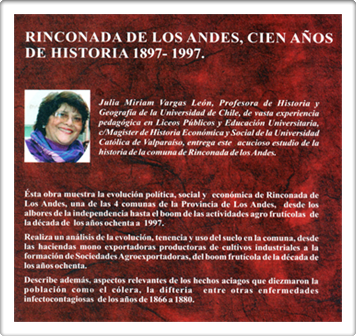Mr. Patricio Molina Suárez
Born in the commune of Rinconada de Los Andes where he lives his life in the Casuto sector together with Mrs. Ester Letelier Calvo, a native of Valparaíso.
They both had a daughter, Mrs. Morelia de las Mercedes Molina Letelier, where he worked as a farmer on his farm "San Patricio" and was elected Mayor of Rinconada for 12 years.
Managing him as Mayor of Rinconada
In the book "Rinconada de Los Andes-Cien años de Historia" by the historian Julia Miriam Vargas León, he points out:
From a very young age he had a predilection for public service, he was registered in the electoral registers in 1894, he was secretary, then Alderman, reaching the position of Mayor of the 1st. Commune of Rinconada for 12 years between 1913 and 1921.
Attached to compliance with the laws and regulations of the central government, in his period as mayor he had to solve health, educational and other problems that he took as great challenges.
On April 9, 1916 in the newspaper "La Voz de Los Andes", he communicated to the readers that in the Rinconada commune all those who let water spill into the streets would be fined with a fine of 20 pesos each time. a situation that generated the destruction of the roads due to flooding and the stagnation of waters, also generating plagues of sancudos.
The weekly newspaper La Aurora de Los Andes, of August 29, 1915, pointed out the ordinance of slaughter and sale of meat in the commune:
Regulation of Supply and sale of dead meats.
For the mayor, it was necessary to comply with the norms and laws dictated by the State, many treated him as a legalist, however it was imperative to maintain the community in good living conditions and the benefit of the ordinance for slaughter and sale of meat in Rinconada that He pointed out in the main the provisions of fresh and clean food for the community members.
His concern for education
Due to his convictions, Mayor Molina had the current provisions regarding primary education in the commune published in the Los Andes media in order to raise awareness in the community of the importance of the Primary Education Law.
In view of the results, it was necessary to apply the Constitution of the Republic that obliges parents to comply with sending their children to school.
The Mayor made it clear that the Constitutional provisions regarding public instruction must be complied with, which is why he released articles No. 144 of the Constitution that defines Public Education as preferential attention of the State and recalls that Art. 494 of the Penal Code obliges parents and guardians to comply with their duty noting the fines to which offenders are exposed accordingly, which the current laws confer on the Municipalities to apply the following verbatim:
"That the law of November 24, 1860 in its article 36 confers on the Municipalities the care and vigilance of the fiscal schools that are within the Commune.
That the art. 115 of the current law of Municipalities gives the Mayors the power to apply the fines incurred by offenders to No. 15 of art. 494 of the Penal Code, Decree:
1°.- All children of both sexes from seven to fourteen years of age existing in the Commune and within a radius of two kilometers from each school, whether fiscal or private, are obliged to attend them at the hours established the Primary Instruction Regulation.
2º.- The parents; or those who legally take their place, who do not force their children or pupils to attend school in compliance with this decree, will incur a fine of 10 to 20 pesos for the Municipal benefit, for each infraction, unless it is verified in this Mayor's Office the reasons that justify the absence.
3º.- Parents or guardians who wish to educate their children at home must express in writing to this Mayor's Office, which reserves the right to verify the veracity of the statement by the means at its disposal.
4º.- Request from the preceptorship of this Commune, in accordance with the Visitation of Schools and as a special service to this Mayor's Office, that they pass a monthly payroll of the registration of the establishments in their charge, noting the absences that have not been justified.
5º.- This decree will enter into force on April 1 of this year.
Write down, publish and notify the I. Municipality.”
Patricio Molina S., 1st. Mayor.
Corner of the Andes, August 4, 1916"
Taken verbatim.
La Aurora de Los Andes newspaper, p. 3
National Library of Santiago.
Drinking Water for Rinconada
Described by Mayor Molina that moved the public and was published by Diario El Mercurio de Valparaíso, which we transcribe:
Insertion.
"The water that Rinconada consumes, a worrying situation"
The Local Government Council has received the following communication:
Rinconada de Los Andes, November 8, 1917.
In a session held on the 7th of this month, it was unanimously agreed to request the enlightened opinion of that Council on the following point:
at the end of Los Andes
As in this town there is no drinking water, the inhabitants drink the water from the canals that come out of the
Aconcagua river and that before reaching this commune pass through the city of Los Andes and part of the
Calle Larga commune; well, in the city of
Los Andes they throw into the mentioned channels the waste of the town, that of a tannery, the water emanating from the hospital and what is even more serious, the filth of the
Tuberculosis Sanatorium of
Los Andes.
Naturally, as this entails a danger for the population, this
Municipality wants to know the opinion of that Illustrated Council on the measures that can be taken to stop this anomaly, and who should be contacted to avoid these attacks against the residents�.
Yours sincerely.-
Patricio Molina.
The response that the mayor could have received was not given in newspapers and weeklies of the time.
Mayor Molina belonged to the liberal current of the
President of the Republic, Mr. Ramón Barros Luco.
As
Mayor, he ruled to support the government's policies, especially those of primary education, knowing that many children did not attend school for various reasons, including distance, or because they accompanied their father to agricultural work in order to increase their salary family, likewise the girls for assisting their mothers in the care of their brothers in housework, as assistants to their mothers in the employers' homes.
By virtue of government efforts and by presidential order, Mayor Molina ordered on
January 19, 1916, the school census of this commune to be carried out, the commission was made up of the
Mayor, Municipal Secretary, the
Parish Priest and each teacher in their respective school appointed by this
Mayor's Office.
The
Municipal Secretary was required to make a list of all children who had reached school age in order to determine his educational policy.
Road to Curimón Station
Urgency of a road between
Rinconada and the
Curimón railway station 1919.
Given the repeated calls of the community to its authorities, of the need to have an expedited road to the
Curimón railway station from where you can get to
Santiago or
Valparaíso or vice versa, the mayor
Patricio Molina Suárez, the aldermen
Francisco J Díaz, Manuel Corona, Juan Ramón Sariego, Roberto Muñoz and
Sergio Celedón, agreed to request this road from the
President of the Republic, committing to send him the plans with the characteristics of said initiative, also requesting the cooperation of the Parliamentarians of the area, to the extent The initiative arrived, without major responses that year.
His poetic talent
One of the qualities that this family has had is its inspiration in the poetic arts.
As the historian
Julia Miriam Vargas León, in her book points out that the costumbrista scenes recounted as verses were common true events in the 19th century in America and in Chile.
In our country they are manifested in the verses of
Jotabeche, pseudonym of
José Joaquín Vallejos, at the dawn of our Independence, later, he had faithful exponents in
Eusebio Lillo, Daniel Barro Grez, Luis Orrego Luco, among the most notable, in different genres; the story, theater and novel respectively.
In this area, we can point out that every educated person of the time had a tendency to write poems or prose, in order to highlight cultural and intellectual superiority.
Although some did not have a defined poetic literary structure, they recreate us perfectly, social situations of their environment and place us in a certain historical era.
The two selected examples:
La Trilla and
El Malón, demonstrate what was previously stated with an experiential account of that time:
In the first case,
La Trilla exists a mixture of imagination and truths.
In fact,
José Gallardo existed, the
Mazuelas, they were the
Mazuela sisters who are said to have had a powerful voice that made everyone comment on how beautiful they sang, however, the descriptions of food and drink in the described conditions do not fit sometimes with accuracy to hunt with the rhyme of the verse.
In the case of
El Malón it was a custom lost in time; It does not have a literal relationship with the �
Malón�, defined as an assault or attack so masterfully exposed in the vibrant painting by
Juan Mauricio Rugendas.
According to oral history, in this case it was a party that took place in a friend's house and each guest had to bring a contribution to make it happen; literally an assault on the house where the party would take place.
In these verses dedicated to Don
Manuel Machuca, they give us an idea of ??the peasant
Malones carried out in
Rinconada before the sixties.
The following stories serve as an example of oral history, peasant customs that are masterfully described, by Don
Patricio Molina Suárez who wrote under the pseudonym
"El Huaso Raimundo".
Manuel Machuca's raid
- Patricio Molina Suarez -
One day very early
Molina and his companions
the cartridge belt is well packed (1)
at dawn they left.
They carried their shotguns
well stocked with ammunition
and they did not think about the return
that he has so many stumbles.
the route they took
It's the white ones on the board
and for what was forged to Machuca
give him a Malon (2)
But it was such a rush
in drinking whole gulps
that remained ripe
Molina and his companions
Don Manuel and all his
they received them with care
and already the legs like yuyos
and happy hearts.
They drank enthusiastically
except for Lollipop
why not get so drunk
he fell asleep in a cart.
Don Manuel with joy
then I start to sing
and with the verses he told them
of the good you have to take.
in the Machuca family
you could tell his happiness
and they served them at one
a succulent lunch.
when they retired
turned into an ember
pleased they say goodbye
happy as easter
Molina as more skilled
I passed them without being a rabbit
on the hospital slope
he allowed himself to give them advice.
Hurry up I told them
that the slope is very bad
we're going to end up in the abyss
if a horse slips.
the day is gone
and you have to go over the hill
if the clarity ends
the rest is lollipop.
dashing little profit
and he didn't give him a dick
and everything was forgotten
arriving where Adolfito.
Adolf and his family
he treated them carefully
and from there they left
turned into leather.
When they reached the slope
of the most dangerous road
right there they got off
to enjoy a good rest
Gallardo (3) with his calm
never stepped up
and such was his negligence
who stayed on the slope.
The hill with its slope
it bothered them enough
a drink of brandy.
Molina when it happened
the rough road
two hours waited for them
in the shade of a hawthorn.
the next day early
They continued the day
in an inhuman state
They arrived in Rinconada.
Gallardo did not open his eyes,
Lollipop couldn't walk,
if we are already like lice,
They said without hesitation.
Gregory the Lollipop
he was so busy
that he forgot the shotgun
per second the very stubborn
Don Patricio took her
Gallardo told him,
Spinoza believed him
and they did not try to look for her.
They arrived without a shotgun
to the village of Casuto
“these are really lollipops”
Espinosa said in fright.
Molina instantly left
with skinny Juanito
and found nothing on the way
arriving where Adolfito.
sad disappointed
they returned to the house
the sorrows my pelao friend
with a drink they pass.
The search continued
on the third day early
and the shotgun they found
at Mandujano's house.
three days in bed
cost Gregory the Lollipop
for the blows he gave himself
on the repeated slope.
For now it's over
the hill adventure
and only Espinoza took
the breakage of his head.
Threshing at José Gallardo's house
Author: The huaso Raimundo (4)
To the threshing of the wells
many people come
to pass full of joy
and to drink brandy
Of those made in Rinconada
is the best of the trails
is always threatened
for some pretty girls.
The punch of hosts (5)
so nice tasting
looks like a nun's hand
prepared by my friend
Why do I say anything?
of the succulent pots
and the beautiful tunes
sung by the Mazuelas (6)
Its owner is so kind
with gentlemen and ladies
making more effort
to these last visits.
This man does not rest
in providing us with liquors
they only deserve praise
for always being the best.
It eats like wild
you drink more than an ox
the character is so good
to serve us without law.
Just a discordant note
there was this time
and with very sharp jokes
forgiveness was granted.
Gallardo was careless
to wear in the kitchen
and in the era he gave us
a chacolí with benzine (7)
Noticing that bad taste
the claim was immediate
and sent to Casuto
Don Pato's brother.
Several barrels were taken
Pipes (8) and demijohns
drink glasses by thousands
until they lose their urge.
Mr. Gallardo said
in the midst of the commotion
I don't know since when
the broken one is a good taster.
Excuse me mate
that I was not
for not bothering him
in a calf
Goats, lambs and birds
that is very little for me
my belly is a ship
and challenge any broken.
I like to drink
drinks provided
but these must be
of those who call litreados (9)
I stayed with the desire
to accompany him to his threshing,
who is to blame
my wife and my little girl.
I find them right
to this pair of pumpkins
because on more than one occasion
I follow the threshing at home.
Goodbye dear friend
my affectionate greetings,
how long for the mother,
do you stay in the wells? (10)
Clarifications:
(1) - Canana: belt where the shotgun bullets were kept
(2) - Malón coexistence in which each diner brings some food or drink.
(3) - Refers to Mr. Segundo Gallardo.
(4)-Pseudonym of Don Patricio Molina Suárez, unpublished poem delivered by his grandson Patricio Molina Molina 1997.
(5) - Drink prepared with sticks of culén boiled with cinnamon and sugar, once cold, adults added brandy, children drank it alone.
(6) - They were sisters from an important family in Rinconada.
(7) - Chacolí, homemade wine with a sweet taste.
(8) - Pipes and barrels for transporting wine and demijohns equals 15 liters.
(9) - Wine sold in bulk, per litre.
(10)-Unpublished poems delivered by his grandson Mr. Patricio Molina Molina
1997.
Revista Chilena.com
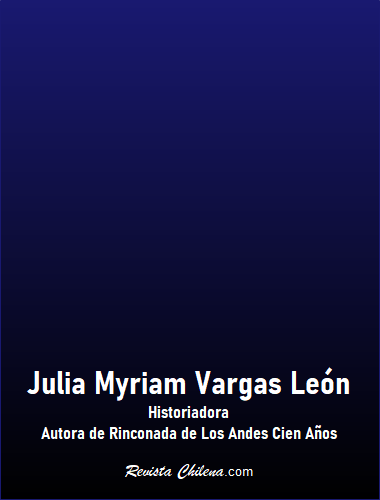


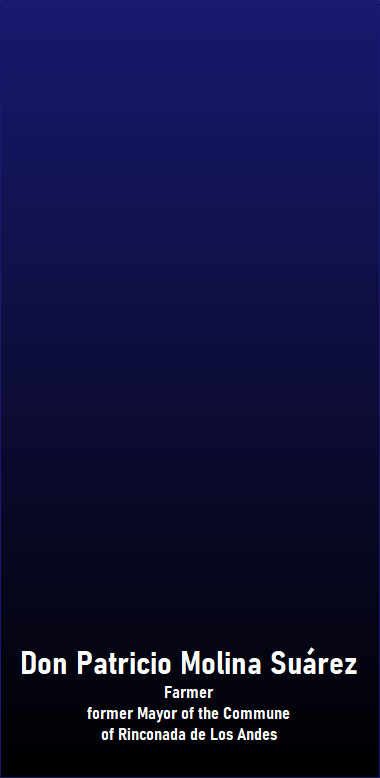
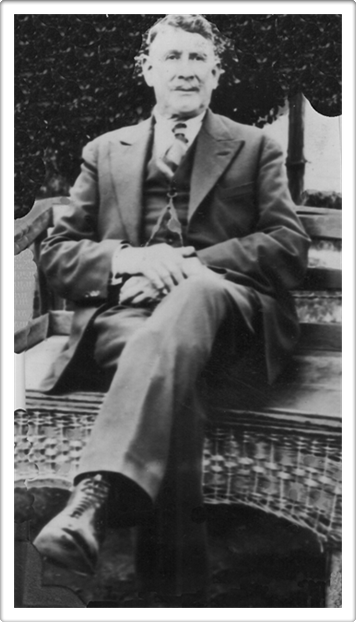

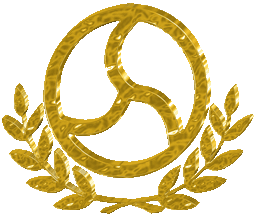


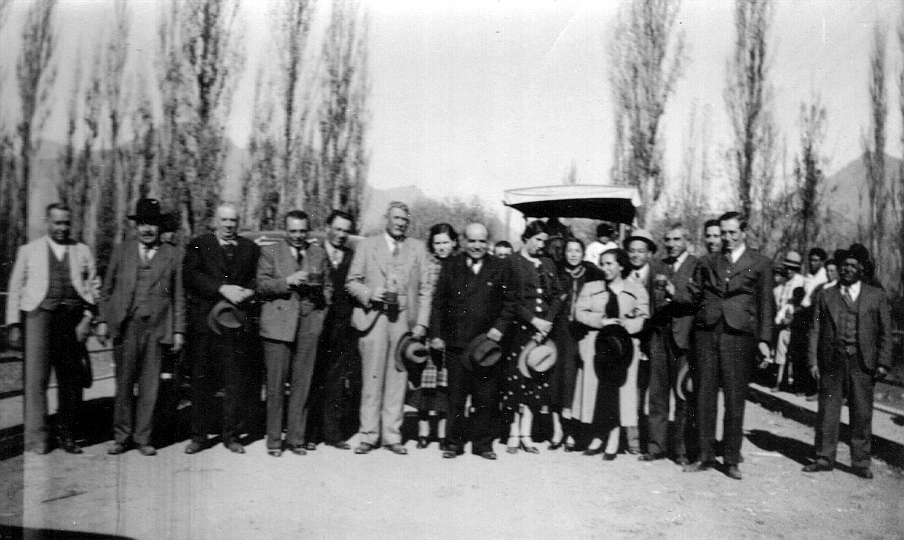
Inauguration of the Pocuro Bridge in Rinconada de Los Andes
View looking South towards Santiago.
Note the railings and the same sidewalk on the sides.
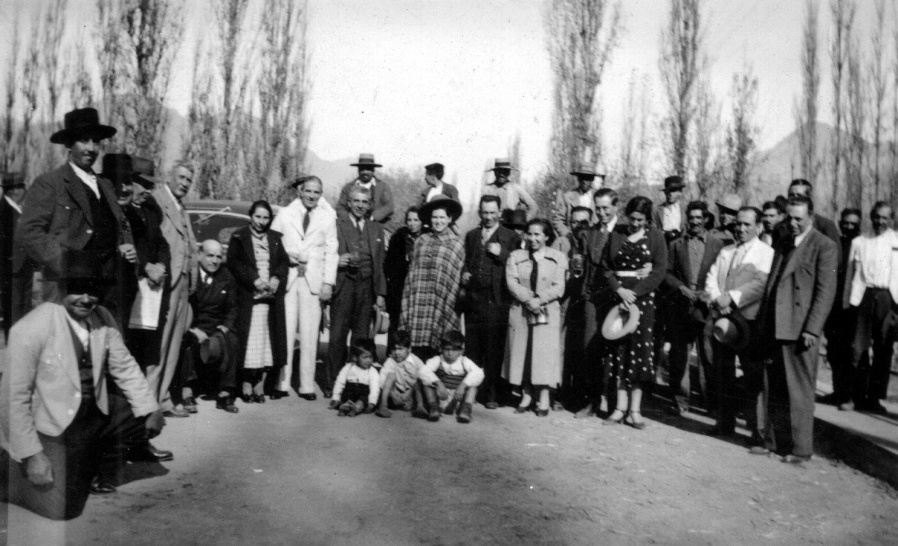
Inauguration of the Pocuro Bridge in Rinconada de Los Andes
View looking South towards Santiago.
Note the railings and the same sidewalk on the sides.
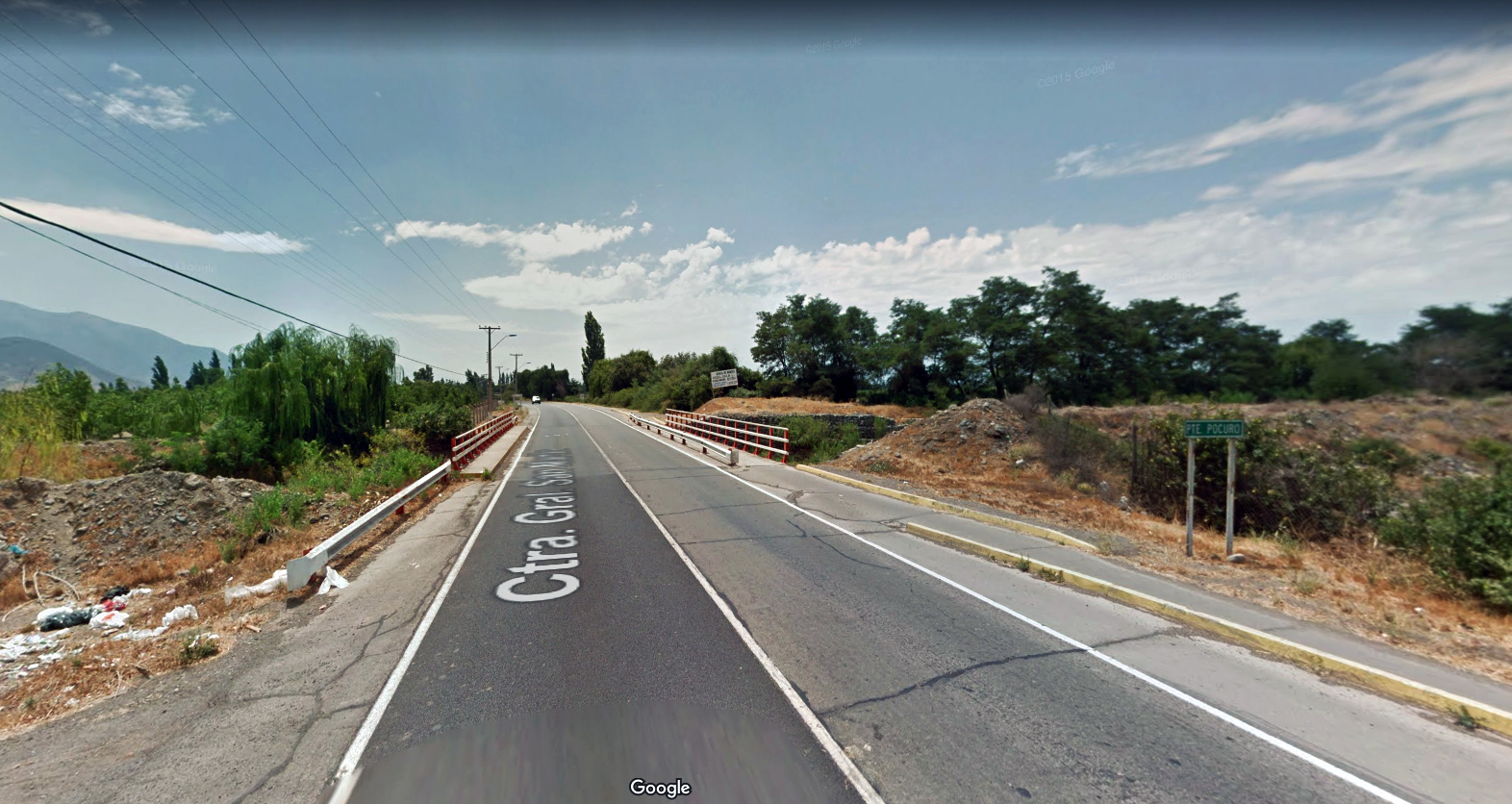
Pocuro Bridge Currently - North View
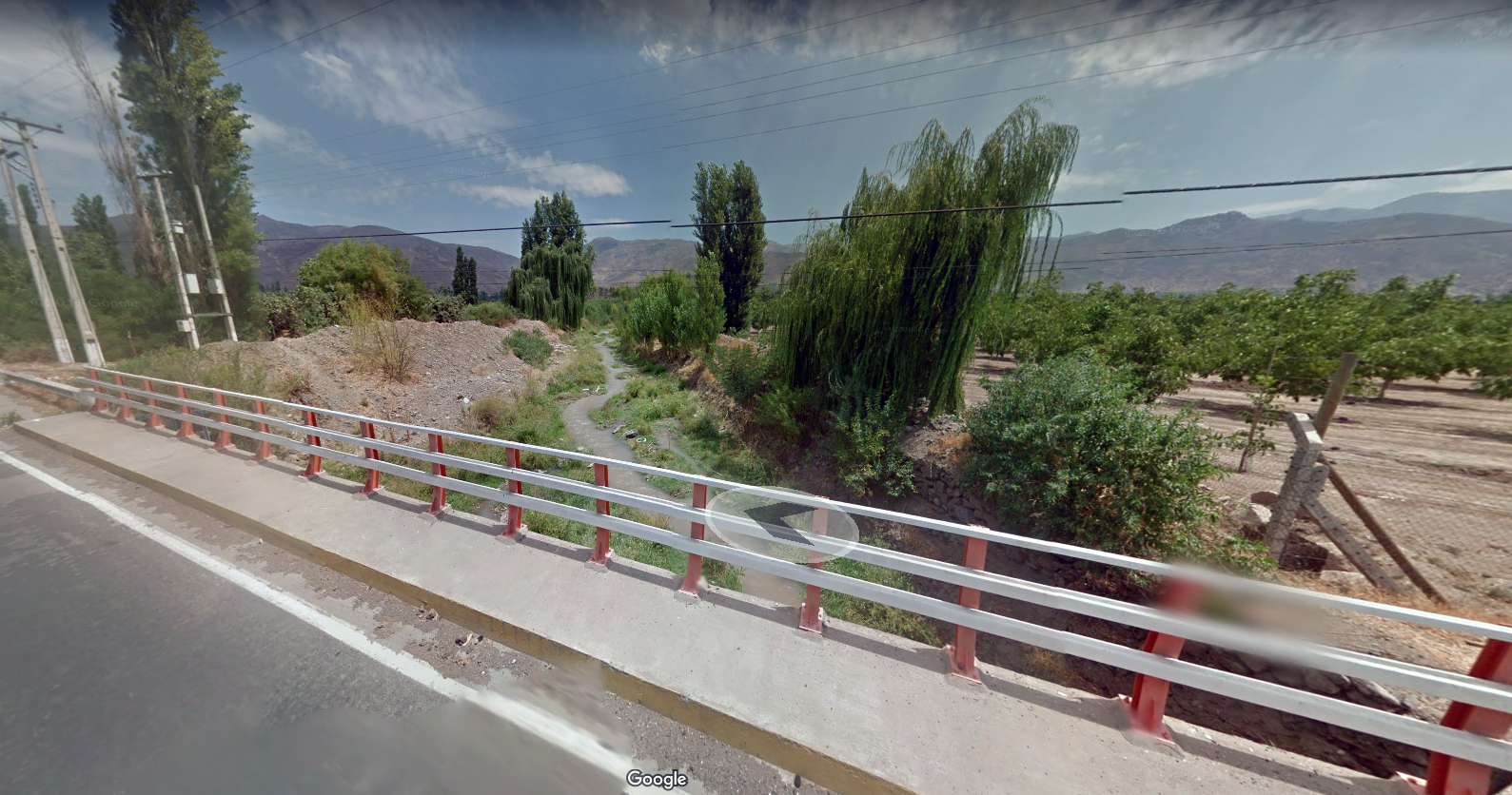
Pocuro Bridge Currently - West View
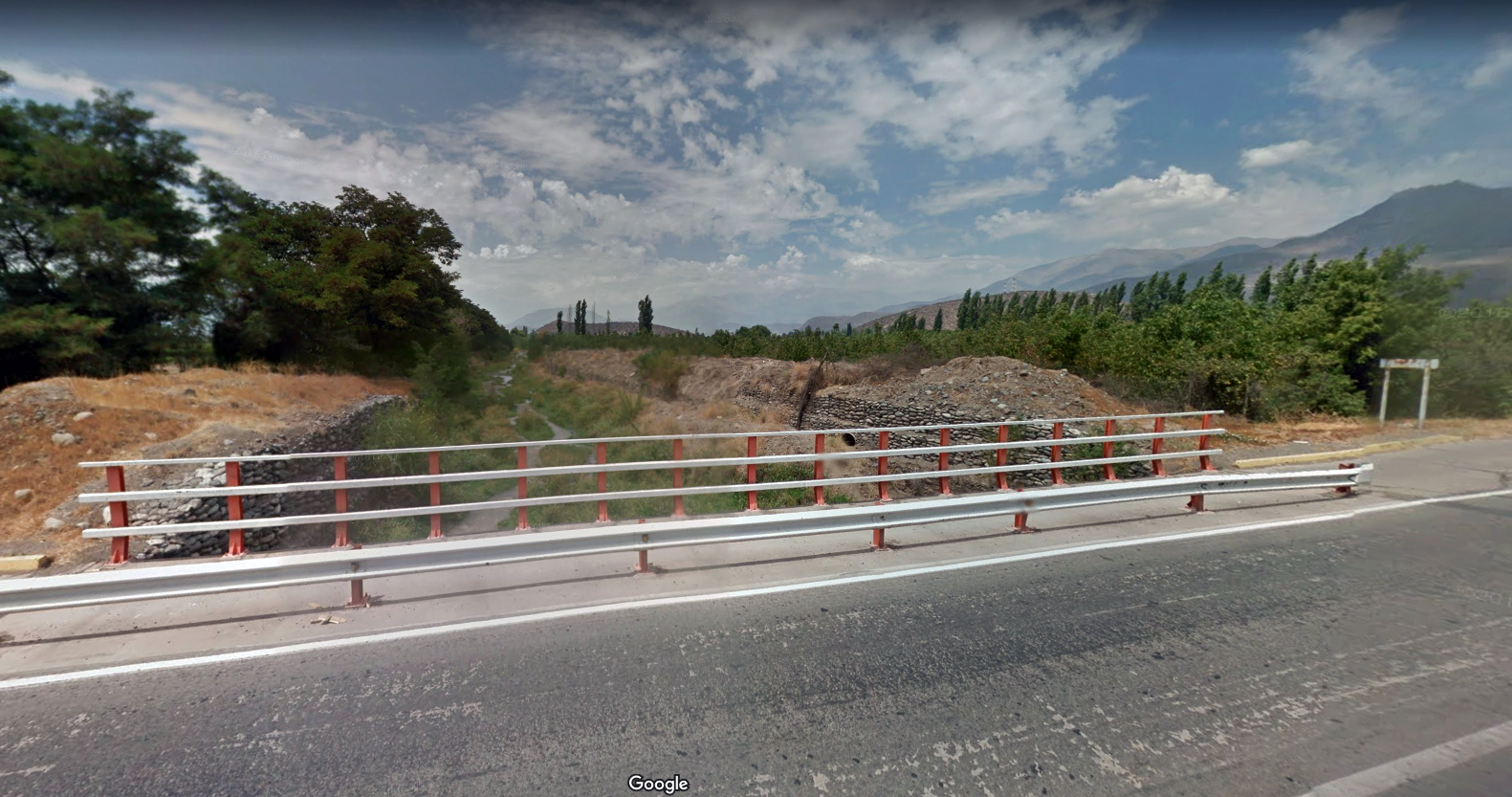
Pocuro Bridge Currently - East View
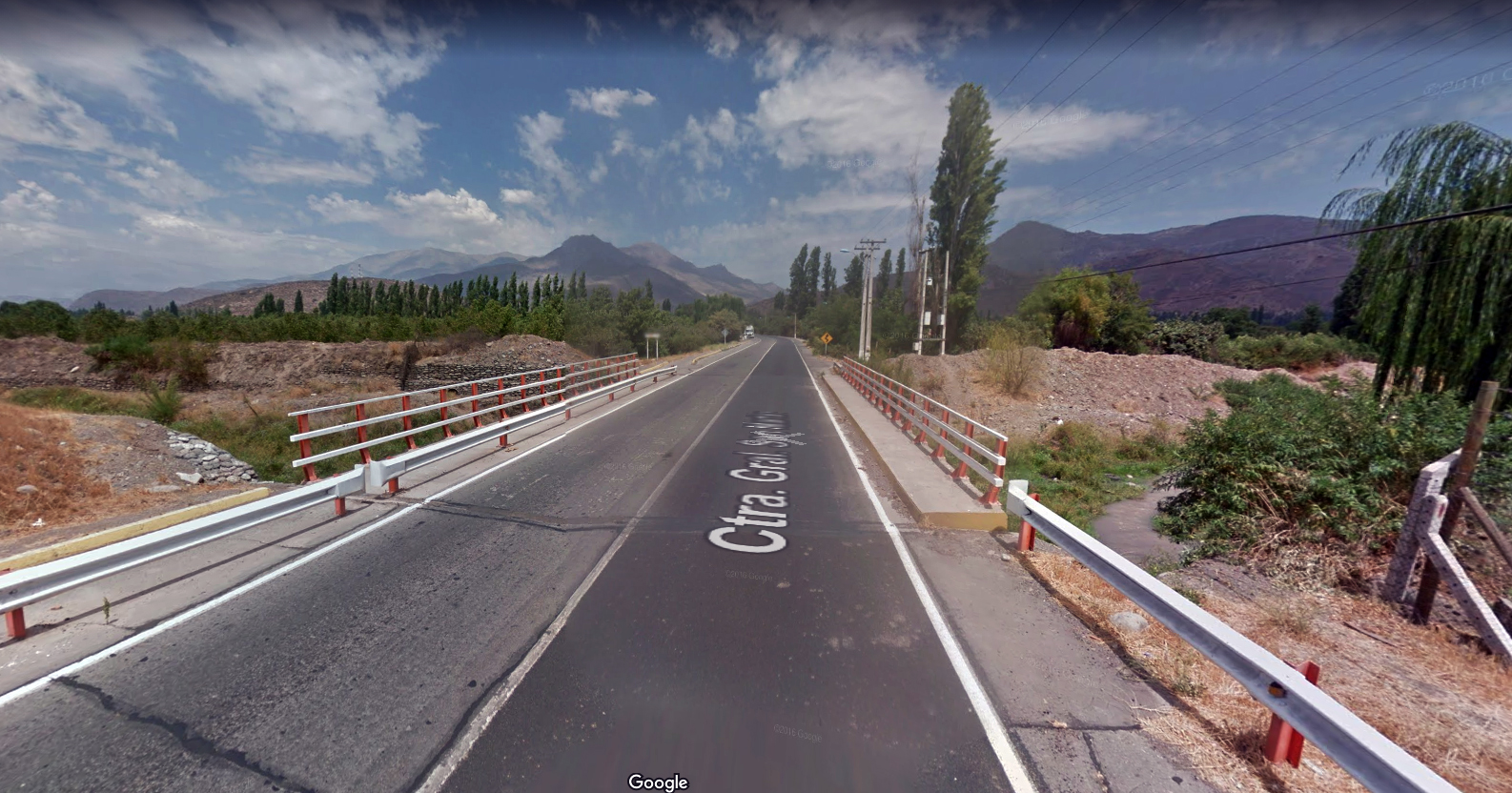
Pocuro Bridge Currently - South View












